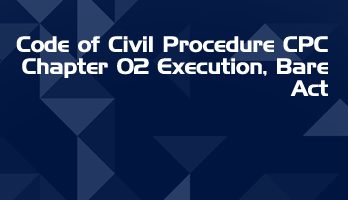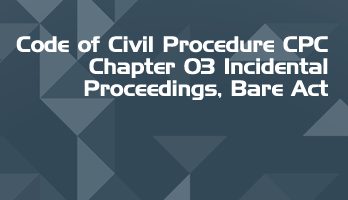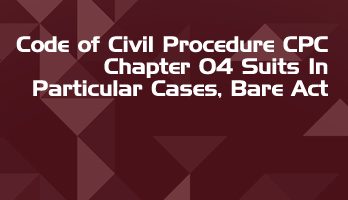A 'Bare act' is the actual legislation passed by the Parliament of India. Generally, an act sets out the high level legal and policy principles applicable to the subject matter of the law.
Most acts are accompanied by 'subsidiary legislation' such as rules, regulations, notifications and orders; which address the actual implementation detail of the act.
Free Full Course Available on LawMint's YouTube Channel
How to Land Your Dream LLB Internship in a Top Law Firm
- Part 1 - Introduction
- Part 2 - Internship Planning
- Part 3 - Internship Research
- Part 4 - Building Your Profile
- Part 5 - The Email
- Part 6 - The Resume
- Part 7 - The Cover Letter
- Part 8 - The Interview
- Part 9 - Self Development
Practical and comprehensive course, with real examples and step-by-step analysis of the complete internship application process. Check out LawMint's YouTube channel now!
Indian Divorce Act, 1869
Chapter V – Judicial Separation
Section 22 – Bar to decree for divorce a mensa et toro; but judicial separation obtainable by husband or wife
No decree shall hereafter be made for a divorce a mensa et toro, but the husband or wife may obtain a decree of judicial separation, on the ground of adultery, or cruelty, or desertion without reasonable excuse for two years or upwards, and such decree shall have the effect of a divorce a mensa et toro under the existing law, and such other legal effect as hereinafter mentioned.
Section 23 – Application for separation made by Petition
Application for judicial separation on any one of the grounds aforesaid, may be made by either husband or wife by Petition to the District Court or the High Court; and the Court, on being satisfied of the truth of the statements made in such Petition, and that there is no legal ground why the application should not be granted, may decree judicial separation accordingly.
Section 24 – Separated wife deemed spinster with respect to after – acquired property
In every case of a judicial separation under this Act, the wife shall, from the date of the sentence, and whilst the separation continues, be considered as unmarried with respect to property of every description which she may acquire, or which may come to or devolve upon her. Such property may be disposed of by her in all respects as an unmarried woman, and on her decease the same shall, in case she dies intestate, go as the same would have gone if her husband had been then dead: Provided that, if any such wife again cohabits with her husband, all such property as she may be entitled to when such cohabitation takes place shall be held to her separate use, subject, however, to any agreement in writing made between herself and her husband whilst separate.
Section 25 – Separated wife deemed spinster for purposes of contract and suing
In every case of a judicial separation under this Act, the wife shall, whilst so separated, be considered as an unmarried woman for the purposes of contract, and wrongs and injuries, and suing and being sued in any civil proceeding; and her husband shall not be liable in respect of any contract, act or costs entered into, done, omitted or incurred by her during the separation: Provided that where, upon any such judicial separation, alimony has been decreed or ordered to be paid to the wife, and the same is not duly paid by the husband, he shall be liable for necessaries supplied for her use: Provided also that nothing shall prevent the wife from joining, at any time during such separation, in the exercise of any joint power given to herself and her husband.
Section 26 – Decree of Separation obtained during absence of husband or wife may be reversed
Any husband or wife, upon the application of whose wife or husband, as the case may be, a decree of judicial separation has been pronounced, may, at any time thereafter, present a Petition to the Court by which the decree was pronounced, praying for a reversal of such decree, on the ground that it was obtained in his or her absence, and that there was reasonable excuse for the alleged desertion, where desertion was the ground of such decree. The Court may, on being satisfied of the truth of the allegations of such Petition, reverse the decree accordingly; but such reversal shall not prejudice or affect the rights or remedies which any other person would have had, in case it had not been decreed, in respect of any debts, contracts, or acts of the wife incurred, entered into, or done between the times of the sentence of separation and of the reversal thereof.
Important Central Acts in Regional Languages
Legislative department website also features regional language versions of several important Central Acts.
Free Full Course Available on LawMint's YouTube Channel
How to Land Your Dream LLB Internship in a Top Law Firm
- Part 1 - Introduction
- Part 2 - Internship Planning
- Part 3 - Internship Research
- Part 4 - Building Your Profile
- Part 5 - The Email
- Part 6 - The Resume
- Part 7 - The Cover Letter
- Part 8 - The Interview
- Part 9 - Self Development
Practical and comprehensive course, with real examples and step-by-step analysis of the complete internship application process. Check out LawMint's YouTube channel now!












